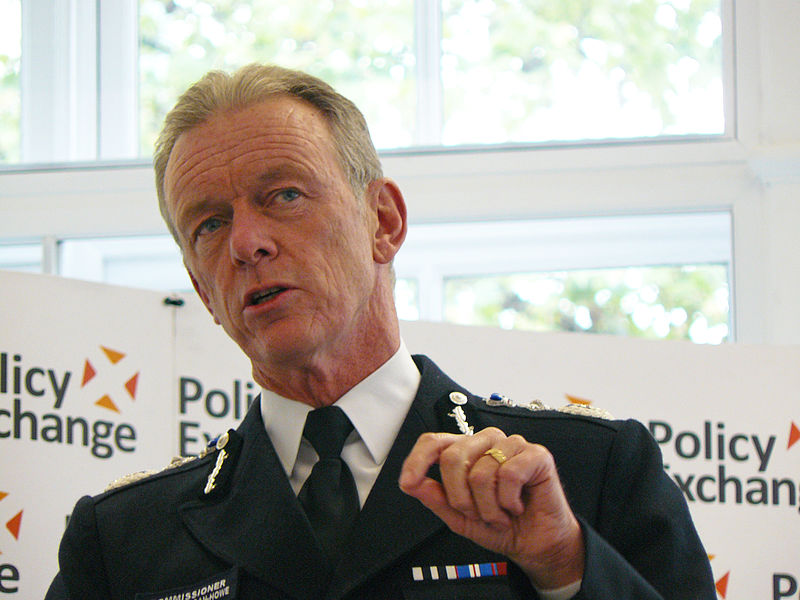This is an old revision of the document!
Sir Bernard Hogan-Howe
 see wikipedia →Bernard_Hogan-Howe
see wikipedia →Bernard_Hogan-Howe
“Sir Bernard Hogan-Howe, QPM (born 25 October 1957) is the present Commissioner of Police of the Metropolis (of London). He was previously Chief Constable of Merseyside Police, an Assistant Commissioner of the Metropolitan Police, and more recently one of Her Majesty's Inspectors of Constabulary. On 18 July 2011, the Home Secretary announced Hogan-Howe's temporary appointment as Acting Deputy Commissioner following the resignation of the Commissioner, Sir Paul Stephenson, and the appointment of the incumbent Deputy Commissioner as Acting Commissioner. Hogan-Howe applied for the position of Commissioner himself in August 2011 along with other candidates and was successful in being selected for the post on 12 September 2011 after appearing before a panel of the Home Secretary and the Mayor of London and receiving the approval of the Chair of the Metropolitan Police Authority, before he was formally appointed by The Queen. Hogan-Howe was knighted in the Queen's 2013 New Year Honours for services to policing.”
see independent →letters policing London
Wednesday 14 September 2011, Letters: Policing London: “The newly announced Commissioner of the Metropolitan Police, Bernard Hogan-Howe, has made fighting crime his top priority, promising to make the Met a service criminals fear. This is to be commended, and is an area in which Hogan-Howe has an impressive track record. However, for the Met Commissioner, reducing crime is merely the day job. To make his five-year term a success, Hogan-Howe will need to make bold and radical changes. He takes over at a time when morale in the Met is low. The force faces unprecedented cuts, and has been battered by the riots and the phone-hacking scandal. The position of Commissioner itself has become a political football. There are two immediate priorities that Britain's most senior police officer must tackle. First, confidence in the Met needs to be rebuilt and its effectiveness improved. The new Commissioner must focus on fixing internal problems and developing a long-term strategy to ensure the effectiveness of the force. This will require the immediate establishment of a highly effective top team, with the right people in the right roles, working together for a common purpose. Secondly, the role of the organisation needs to be re-examined. The scale of the job presents a significant challenge, encompassing unique local and national accountabilities and two bosses in the Home Secretary and London Mayor. Now is the time for a clear and achievable purpose to be established, allowing the force to focus solely on policing London – a demanding remit in its own right. To achieve this, the newly established National Crime Agency (NCA) could take on more of a role in national issues, including terrorism. These issues need to be addressed before the new Commissioner can hope to tackle crime and disorder, or develop a strategy to ensure the Olympic Games pass off peacefully at a time of change and significant police funding squeezes.
Mike Hay Head of uniformed services consulting, Hay Group London SW1
Perhaps the new Metropolitan Police Commissioner, Bernard Hogan-Howe could give some clear- cut advice to his staff on the subject of police officers becoming freemasons. One of his predecessors, Sir Kenneth Newman, during the 1980s advised serving officers not to become masons because “the police officer's special dilemma is the conflict between his service declaration of impartiality and the sworn obligation to keep the secrets of Freemasonry”. As far as I know none of his successors to date has openly challenged the logic of this statement, but according to national press reports serving officers have continued to join masonic lodges and have even set up some new lodges. Some high-level guidance is surely now needed on this important subject.
John Kenny (Metropolitan Police Officer, 1965-1995) Acle, Norfolk.”

